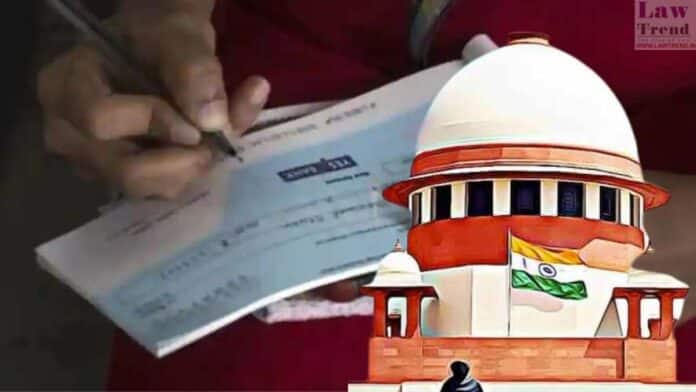A Supreme Court bench comprising Justice Sanjay Karol and Justice Vipul M. Pancholi has set aside the conviction of an appellant in a cheque dishonour case after the parties entered into a settlement agreement. While allowing the appeal, the Court directed the appellant to deposit 10% of the cheque amount as compounding costs with the
To Read More Please Subscribe to VIP Membership for Unlimited Access to All the Articles, Download Available Copies of Judgments/Order, Acess to Central/State Bare Acts, Advertisement Free Content, Access to More than 4000 Legal Drafts( Readymade Editable Formats of Suits, Petitions, Writs, Legal Notices, Divorce Petitions, 138 Notices, Bail Applications etc.) in Hindi and English.




